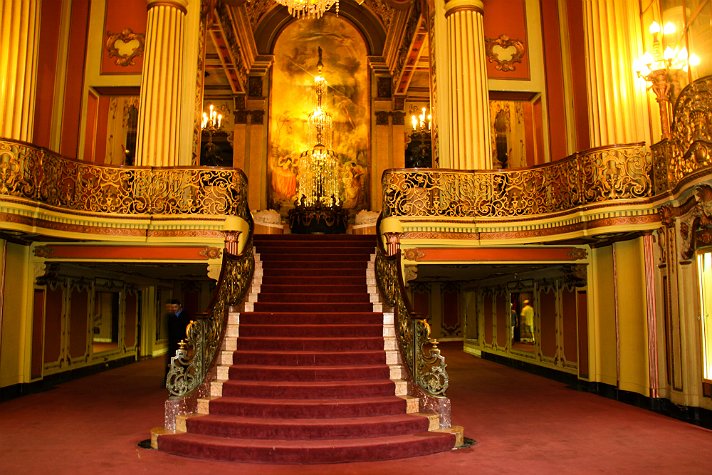Ode de Musset "Une soirée perdue" ("An Evening Lost")

I was alone, the other night, the French Theatre,
Or almost alone; the author had no success.
It was only Molière, and we know of rest
That great clumsy, who made a day Alceste,
Ignored the fine art of tickling the mind
And used to develop a cooked denouement.
Thank God, our authors have changed their method,
And we like better some drama in fashion
Where the plot, embraced and rolled scallop,
Spinning like a riddle about a kazoo.
But I listened to this simple harmony,
And as common sense is genius speak.
I admired what love to the bitter truth
This man was so proud in his naivety,
What a great and true knowledge of the things of this world,
What gaiety male, so sad and so deep
That when you just laugh, we should cry!
And I wondered: Is it enough to admire?
Is it enough to come one evening by chance
To hear the depths of the soul a cry of nature,
To wipe away a tear, and go well,
Whatever one does for that matter, without taking care?
I was down in this reverie,
Here and there, however, eyeing the gallery
I saw before me was swinging gaily
Under a black braid a slender neck and charming;
And seeing this ebony set in the ivory,
A line from André Chénier sung in my memory,
An almost unknown to unfinished refrain,
Fresh as chance, less written than dreamed.
I dared to remember, even before Molière;
His long shadow, for sure, is not offended;
And while listening, whispering to myself,
Looking at this child, who was not aware of:
"Under your kind head, white neck, delicate,
Folds, and snow erase the shine. "

Then I thought again (so goes the thinking)
The ancient franchise at this point abandoned,
With our finesse and mocking our mind,
Would believe, after all, we lack heart;
It was a sad and shameful misery
This loneliness round about Molière,
And it is yet time, as the song says,
Out of this world or to be right;
For what this compare mired scene
And the terrible shame that the muse has fallen?
Cowardice flange us, and fools are saying
That under the old sun, everything is done now;
As if through the human family
Do not rejuvenated each year, every week.
Our century has its manners, hence its truth;
Whoever dares to say is always listening.

Ah! I dare to speak, if I believed say,
I would dare pick up the whip of satire,
And dress in black, this man with green ribbons,
Which once angry for a few bad verses.
If he returned today in Paris, the great city,
There be more likely to stir his bile
A bad wife and a bad sonnet;
We have other things to put in the cabinet.
O master of us all, if your tomb is closed,
Leave me your ashes in a moment revived,
Find a spark, and I'll follow you!
I have done enough if I try.
Teach me what tone, bold in your mouth,
Spoke the truth, your only passion,
And, to make me understand, if not genius,
I have the courage and indignation!

So I caressed a crazy dream.
Before me though, next to his mother,
The child was still, and the slender neck and white
Under the long black hair was rocking gently.
The show ends, the charming unknown
Rose. The beautiful neck, shoulder half naked,
Clouded; hand slipped into the sleeve;
And when I saw her at her doorstep
Run away, I realized that I had followed.
Alas! my dear friend, this is my life.
While my mind sought his will,
My body knew hers and followed beauty;
And when I awoke from this dream,
Nothing was left me more than the beloved image:
"Under your kind head, white neck, delicate,
Folds, and snow erase shine. "
All Images Courtesy of : Google Images
This is one of my favorite pieces of Classic 19th century French poetry reassembled by hand into English, and proof written using both my own knowledge of French and with the assistance of Google Translate to ensure accuracy. While there may be some debate as to whether or not this is considered an original article, I feel that translating classic foreign works of French poetry into English for all to enjoy would qualify as such. I have spent several hours proofing, editing and adding contextual pictures so they may better portray this story of "An Evening Lost".
Translation, especially manual, is perfectly fine for something that's public domain. Nice job!
Awesome, TY for the compliment and the okay on translating a 200 year old poem from French into English. I wasn't sure if some people would scream it was plagiarized because the copyright has long since lapsed along with the author more less 200 years ago. That's why I left the disclaimer just in case though.